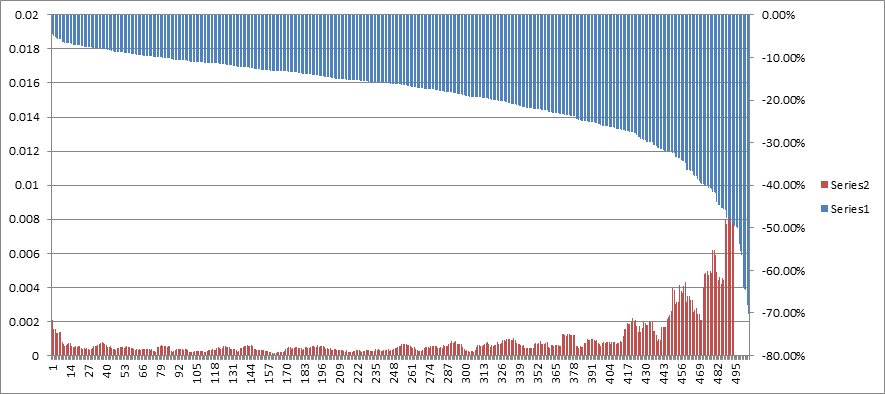A pre-defined process works best

Ellerston Capital
As a rough rule of thumb, a “statistically significant move” and/or an event that wasn’t forecast would result in exiting rather than adding to the position.
Chart Below: Distribution of maximum drawdowns of the S&P 500 stocks in 2015: Beyond 20% the relationship becomes non-linear – setting loss levels reduces the risk of owning (a lot of) a stock where this happens to you.
2 topics

Chad co-founded Morphic Asset Management in 2012. As a stock picker Chad is also a generalist but has strong regional knowledge of Europe and the Americas. He has also been awarded the CFA Charter.
Expertise

Chad co-founded Morphic Asset Management in 2012. As a stock picker Chad is also a generalist but has strong regional knowledge of Europe and the Americas. He has also been awarded the CFA Charter.

